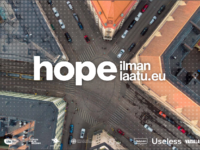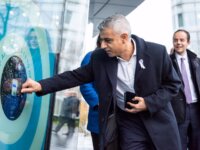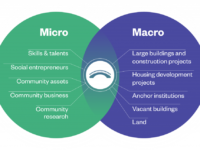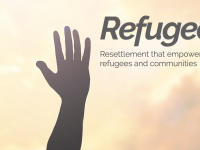Approaches to corruption are generally negative and ineffective- focusing on the problems and the wrong-doers rather than the solutions and the do-gooders. Integrity Icon is a global campaign run by the Accountability Lab organisation to "name and fame" honest government officials, change the narrative around graft and rebuild trust in government through lifting up role-models. It is innovative not just in the citizen and media driven campaign itself, but in the creative ways the campaign then…
Innovation Tag: Citizen Engagement
Nudge Türkiye undertook a project to increase the uptake of government subsidies by SMEs. Analysis showed our subsidies were used by a limited number of big companies, and government could reach the SMEs who need financial support the most. By interacting more closely with the firms, they clarified the pain points for the SMEs. Based on firms' feedback, organisers created a user-friendly website for explaining subsidies, and sent over 30,000 emails that used behavioural messages to nonapplicant…
Case Study
SPILNO – digital democracy platforms for citizens, organizations and government institutions
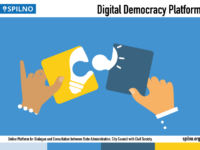
SPILNO is a participatory digital democracy platform for citizens, organizations and local governments. It was created to improve communication of active citizens, acceleration of ideas, initiatives, implementation of socially important projects. A platform of interaction between government and community through the tools of e-democracy.
We created the BizLab, Human Centred Design (HCD) Training Academy to develop skills public servants will need for the future and create a citizen-centred culture in the Australian Public Service.
This is not just another training course.
We not only train participants in HCD tools and techniques, but we make that learning stick with our unique Alumni support system
Governments are facing increasingly complex problems and do not have a repeatable approach for creating solutions that meet citizens needs. Lightning Lab GovTech is a three month government accelerator programme that takes government teams through a six stage innovation process of problem discovery, solution co-design, market validation and technology integration. Through LLGovTech, government departments can create more innovative, efficient and effective solutions to better serve citizens.
This air quality monitoring network in Helsinki region provides information from locations of fixed monitoring stations but the network consists currently of only few monitoring locations. The project aims to produce comprehensive hyper-local air quality monitoring network including crowdsourcing portable monitors that gives citizens air quality information of the exposure to air pollution in places where they live and they travel in the city. The main beneficiaries are therefore the citizens of…
Vilawatt aims to move the energy transition forward in Viladecans through an innovative governance structure where citizens play a key role. The project has set up a public-private-citizen partnership (PPCP) that manages 4 key services: energy supply (100% renewable origin); consulting & training to increase energy awareness & energy culture; energy retrofitting of buildings; new local currency linked to energy savings.
Homelessness is spiralling in the UK, and people want to help but are unsure how and no longer carry cash. In partnership with Mayor of London, TAP London has installed 100 contactless giving points across the city, enabling Londoners to give a £3 tap to support local homelessness services.
USE-IT!, Unlocking Social & Economic Innovation Together!, is a whole neighbourhood approach to addressing urban poverty.
It innovates by building bridges between the places, the people, the public sector, the private sector and civic society partners in a community so they can co-produce solutions to poverty that unlock opportunities and that fits their needs.
By doing this, USE-IT! works by respecting what is already there in a community rather than by assuming what needs to change.
While tens of thousands of refugees are permanently resettled to host countries every year, governments lack the capacity to know which communities to place which refugees.
Annie™ MOORE, used by the resettlement agency HIAS, deploys advanced analytics to recommend communities that are most likely to maximize refugees’ odds of being employed.
Annie™ boosts employment chances by at least 30% over manual placement and ensures that the needs of refugees and community capacities are both…

